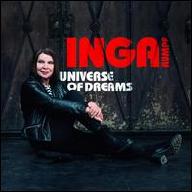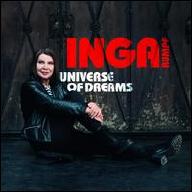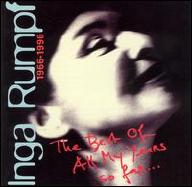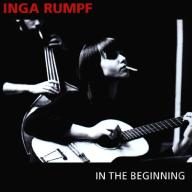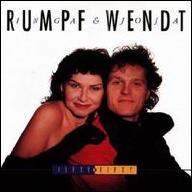Born on August 2, 1946 in Hamburg, Rumpf started performing as a teenager with different blues bands in the Hamburg entertainment district of St. Pauli. In 1965, she founded the folk band City Preachers and recorded three albums with them. After a creative crisis in 1969, the band changed styles from folk to a mix of beat and soul. A new lineup reflected this: Jean-Jacques Kravetz (keyboards), Karl-Heinz Schott (bass) and Udo Lindenberg (drums) formed the core of the new band, which one year later was to become Frumpy when Udo Lindenberg left to start a solo career and was replaced by Carsten Bohn. Frumpy recorded only two albums, All Will Be Changed (1970) and Frumpy 2 (1971) -- the latter containing the hit single How the Gipsy Was Born -- but these two LPs rewrote German rock history. The band was praised as the best German rock act, and Rumpf was declared the greatest individual vocal talent of the German rock scene to date.
After Frumpy disbanded, Rumpf founded Atlantis in 1972, with Kravetz and Schott, along with new additions Frank Diez on guitar and Curt Cress on drums. The same year, the German music magazine -Musik Express selected Rumpf best German vocalist, and her band, Atlantis, "best live and studio band." Several U.K. tours, alone and with Lindenberg, made her well-known in the English-speaking hemisphere as well. Atlantis disbanded in 1975 after three excellent years, and Rumpf released her first solo effort, Second Hand Mädchen, which was heavily influenced by Lindenberg who, two years earlier, had established himself as one of the most promising German rock acts. Lindenberg had shown that German lyrics work in rock songs, and so Rumpf switched to singing in German, too, although on her 1981 album, Reality, she sang in English again. She wrote all of the songs herself for this, and even produced it. Tina Turner did a cover of I Wrote a Letter, which was released as the B-side of her 1984 comeback single Let's Stay Together (re-released as a bonus track on the centenary edition of her landmark album Private Dancer in 1998). Also in 1981, Rumpf widened her horizon by accepting a job as a lecturer at the Hamburg Musikhochschule (university of music). Her 1984 album, Liebe, Leiden, Leben, again containing German lyrics, earned critical acclaim and she proved not to have lost any of the power she'd radiated in the ‘70s with Frumpy and Atlantis.
After a short Frumpy reunion in 1991-1992, the ‘90s saw Rumpf experimenting with jazz (with the 1994 album Fifty-Fifty with pianist Joja Wendt) and gospel music. In accordance with the philosophy of gospel, a significant number of her performances took place in churches, her lyrics became more spiritual, and increasingly revealed a Christian context without being preachy, so even atheists should be comfortable with the music of her later career. Critics hailed her 1996 album In the 25th Hour as her best to that point. Among other covers, the album contained her version of Ray Charles' hit Unchain My Heart, as her best so far. The same year, the compilation The Best of All My Years was released. Her 1999 album, Walking in the Light, contained text adaptations of the biblical Sermon on the Mount.
From 2001 onward, Rumpf started to perform rock, R&B, and soul on a weekly basis in her hometown of Hamburg. Three years later, she founded her own record label, 25th Hour Music with the release of the live album Live im Michel. Rumpf's work with Frumpy and Atlantis, as well as her solo output of later years, is essential listening for everybody who wants to get to know German rock music. ~ Frank Eisenhuth, Rovi


